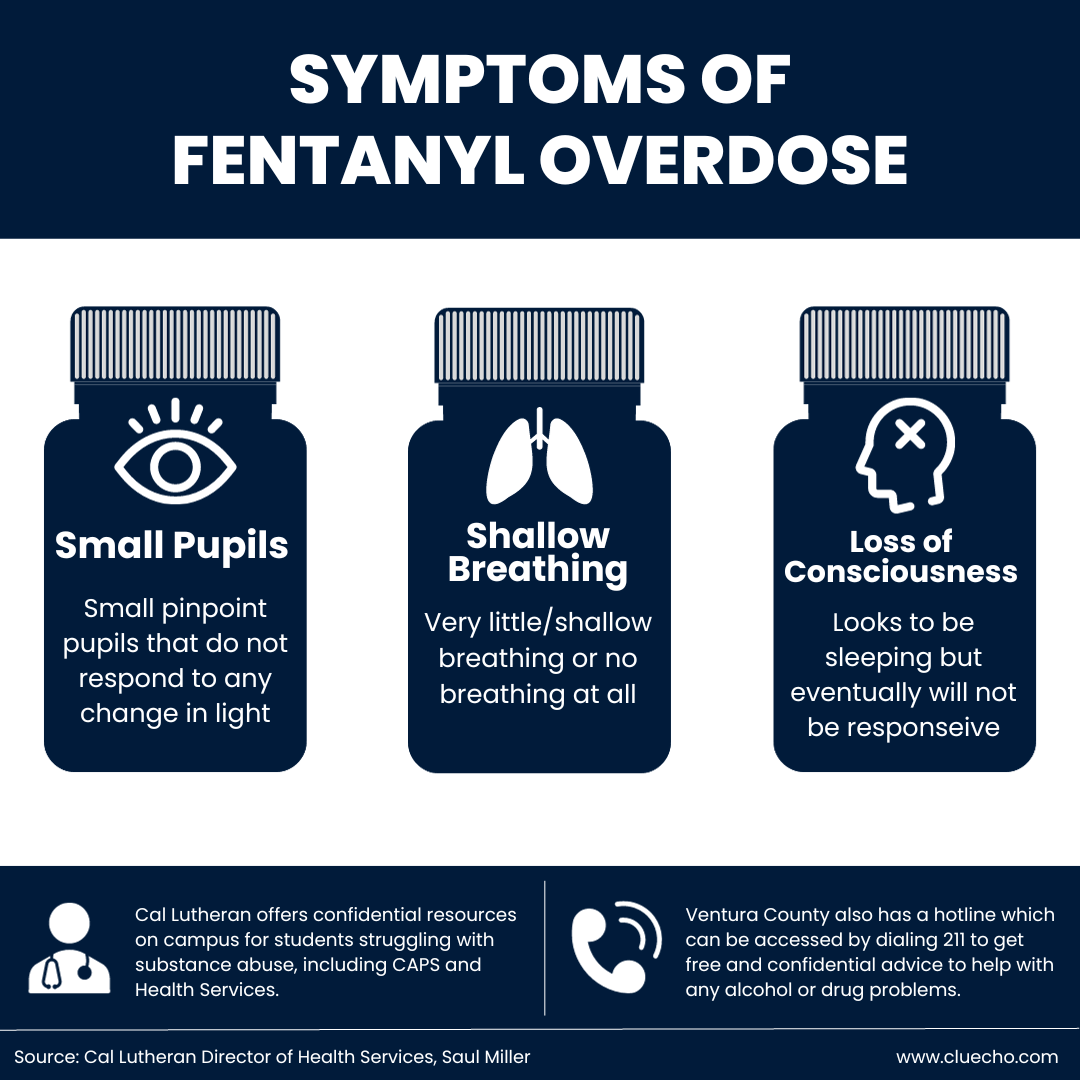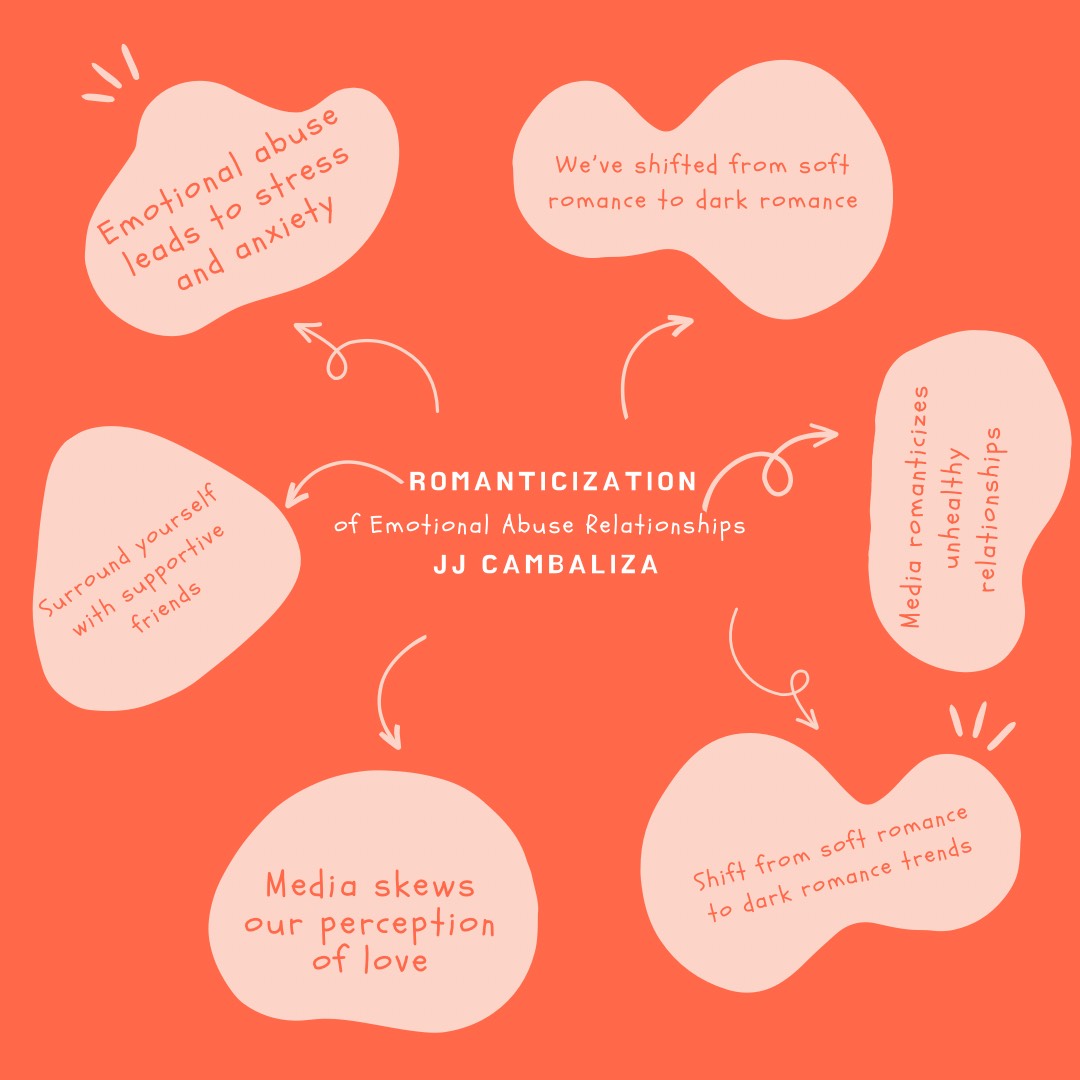On Feb. 14, 2023, California Lutheran University’s student-led newspaper, The Echo, ran an opinion piece written by Sara Topliff on the importance of Narcan training on campus in the fight against the Fentanyl crisis.
Similarly, it spiked discourse about Cal Lutheran and their lack of advocacy on the Fentanyl crisis.
The Drug Enforcement Agency started a movement called the “One Pill Can Kill Campaign” which further brings awareness to the problem that Fentanyl-laced fake pills are one of the main ways the drug is killing young people.
Cal Lutheran Director of Safety David Hilke said in an email interview that the staff has had Narcan training on campus.
“Several strategic staff members participated in the initial training which was provided by ‘Give an Hour’ and Ventura County Public Health,” Hilke said.
Initially, Narcan training was only given to key staff who then qualified as trainers. As awareness of the issue spread, training was then extended to peer advisors and resident assistants.
“Staff members received training and designation as institutional trainers and are now able to train members of our community on the use of Narcan. In August all peer advisors and resident assistants received Narcan training,” Hilke said.
According to Hilke, the program provided Narcan kits which have been distributed around campus for anyone to use in places like Pederson Hall, Trinity Hall, Gilbert Sports and Fitness Center and Swenson Center for Social and Behavioral Sciences AED cabinets.
In an article called “County prepared to fight fentanyl crisis” by Christine Menges, Ventura County Medical Examiner Dr. Christopher Young talks about the dangers of Fentanyl use.
“Fentanyl came to our county and the numbers (deaths) skyrocketed; it’s unlike anything I’ve seen in my career,” Young said in an article for the Thousand Oaks Acorn in October 2023.
The DEA currently runs a campaign called “One Pill Can Kill,” which was created specifically to help raise awareness of the nationwide flood of counterfeit pills marketed as legitimate prescription drugs and sold, in some cases, across Snapchat and other social media platforms. A big majority of these counterfeit pills containing Fentanyl are Adderall and Xanax.
The DEA’s “One Pill Can Kill” campaign offers schools, universities, community outreach and various organizations, materials, billboards, banners, posters and a video public service announcement which all can be used for free to get the word out about the dangers of Fentanyl poisoning.
“The DEA and its ‘One Pill Can Kill’ campaign is an excellent program, and I believe the university can easily incorporate their messaging into our awareness and education programming,” Hilke said.
Cal Lutheran Director of Health Services Saul Miller also believes that additional messaging about the dangers of Fentanyl is an important step.
Miller said in an email interview that the “One Pill Can Kill” campaign put out by the DEA has a lot of great information and shows just how hard it can be to spot fake pills laced with Fentanyl.
“I think public health campaigns that promote awareness of the risks of fake pills laced with Fentanyl are great — in my opinion, public health officials are doing a good job getting the word out and partnering with schools and communities to increase the awareness of risks,” Miller said.
Sometimes, signs of an overdose look like someone is sleeping, but Miller reminds us what the symptoms of Fentanyl or opioid overdose look like.
“Symptoms include small pinpoint pupils, very little or shallow breathing or no breathing at all including cold and clammy skin, and lack of alertness or consciousness,” Miller said. “Initially, the person may appear like they are sleeping but as the overdose progresses, the person will eventually stop breathing and not respond at all, their lips may turn blue and their skin turns pale due to lack of oxygen.”
I think it would take very little effort on the part of Cal Lutheran to use the DEA’s “One Pill Can Kill” posters and print work, and post the materials around campus. Nothing catches your attention and leaves an impression like a strong image.
I also think it’s important to remind students of the confidential, on-campus services available to anyone who may be struggling with addiction problems.
“There are a lot of great, confidential resources on campus for students struggling with substance abuse, including CAPS and Health Services,” Miller said.
According to Miller, Ventura County also has a hotline which can be accessed by dialing 2-1-1 to get free and confidential advice to help with any alcohol or drug problems. Information about 2-1-1 can be found here.





